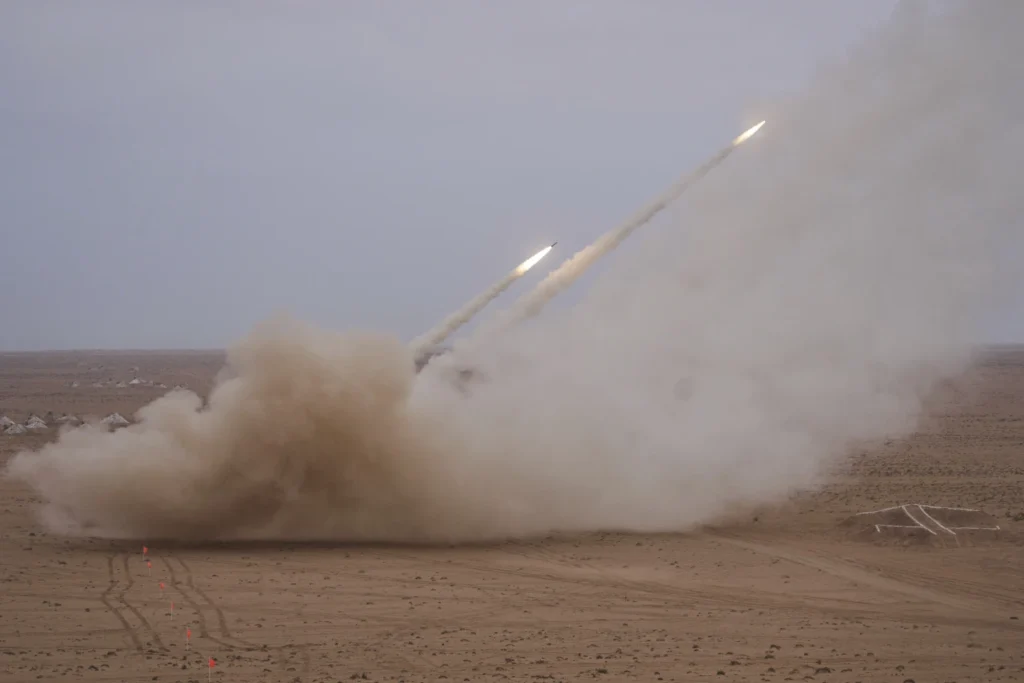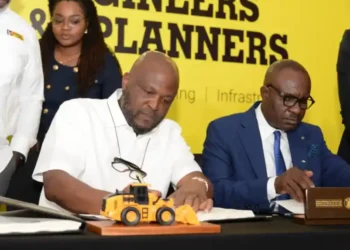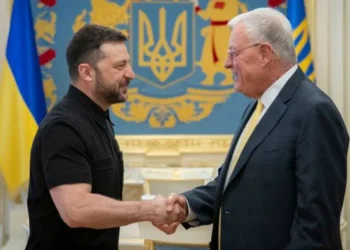The U.S. military is recalibrating its approach to Africa, moving away from its hallmark emphasis on good governance and the root causes of insurgency. Instead, it is now urging fragile regional partners to become more self-sufficient in managing their own security.
This new posture was evident during the recent African Lion military exercise — the largest U.S.-led joint training on the continent. Speaking on the final day of the four-week event, Gen. Michael Langley, the top U.S. military official in Africa, underlined the shift.
“We need to be able to get our partners to the level of independent operations.”
Gen. Michael Langley
“There needs to be some burden sharing,” Langley added, reflecting a new line of thinking that aligns with the broader goals of President Donald Trump’s Defense Department. The priority, according to Langley, is “protecting the homeland” while encouraging others to shoulder more responsibility in stabilizing conflict-prone regions.
The African Lion exercise involved military forces from more than 40 countries executing complex drills, from close-quarter combat to satellite-guided missile launches and drone surveillance missions. Though these maneuvers mirror earlier iterations of the annual exercise, the narrative surrounding them has changed.
Previously, U.S. engagement in Africa heavily promoted a “whole of government” model, which emphasized development and diplomacy alongside defense — a clear distinction from the more transactional approaches of geopolitical rivals like China and Russia. That language is now largely absent.
Burden Sharing Takes Priority Over Governance
Rather than championing U.S. values as stabilizing forces, the Pentagon now stresses building partners’ tactical capacity. It is a strategic pivot aimed at creating what Langley called a “leaner, more lethal force,” which may include trimming leadership roles in regions such as Africa. This change comes even as U.S. adversaries deepen their footprint on the continent.

China has expanded its military training partnerships with African nations, while Russian mercenaries have become key players in security operations throughout North, West, and Central Africa. These shifts present challenges for U.S. influence, especially in regions where insurgent groups continue to grow.
Langley himself once advocated for a broader strategy. Just a year ago, he underscored the importance of a multi-pronged approach, warning that military intervention alone could not address the instability that fuels extremism and state failure. “I’ve always professed that AFRICOM is just not a military organization,” he said at the time. He pointed to issues like “desertification,” “crop failure from changing environments,” and “violent extremist organizations” as layered threats requiring governance-based solutions.
However, such holistic rhetoric has been toned down. While Langley did acknowledge some success stories, like Ivory Coast, where collaborative efforts between security forces and development agencies have reduced jihadist attacks along the northern border, he also admitted that progress has been inconsistent. “I’ve seen progression and I’ve seen regression,” he said, noting he is expected to step down from his post later this year.
Despite the growing need for robust local defense mechanisms, many African militaries remain underfunded and poorly equipped. Meanwhile, insurgent groups are expanding their reach and sophistication.
“We see Africa as the epicenter for both al-Qaida and Islamic State,” a senior U.S. defense official revealed earlier this month. The Islamic State, according to the official, has even relocated parts of its command structure to Africa. The statement was made anonymously, as the official was not authorized to speak publicly.
Africa may not always rank highly in the Pentagon’s strategic priorities, but the U.S. has still invested significantly in the region, with roughly 6,500 Africa Command personnel currently deployed and hundreds of millions of dollars spent on security assistance.
In regions where jihadi groups exploit power vacuums, U.S. forces remain actively engaged. But Washington’s evolving messaging — from holistic governance to self-reliant militaries — signals a dramatic shift in how it intends to counter those threats moving forward.
READ ALSO: U.S. Urges African Allies To Shoulder Security Burden




















